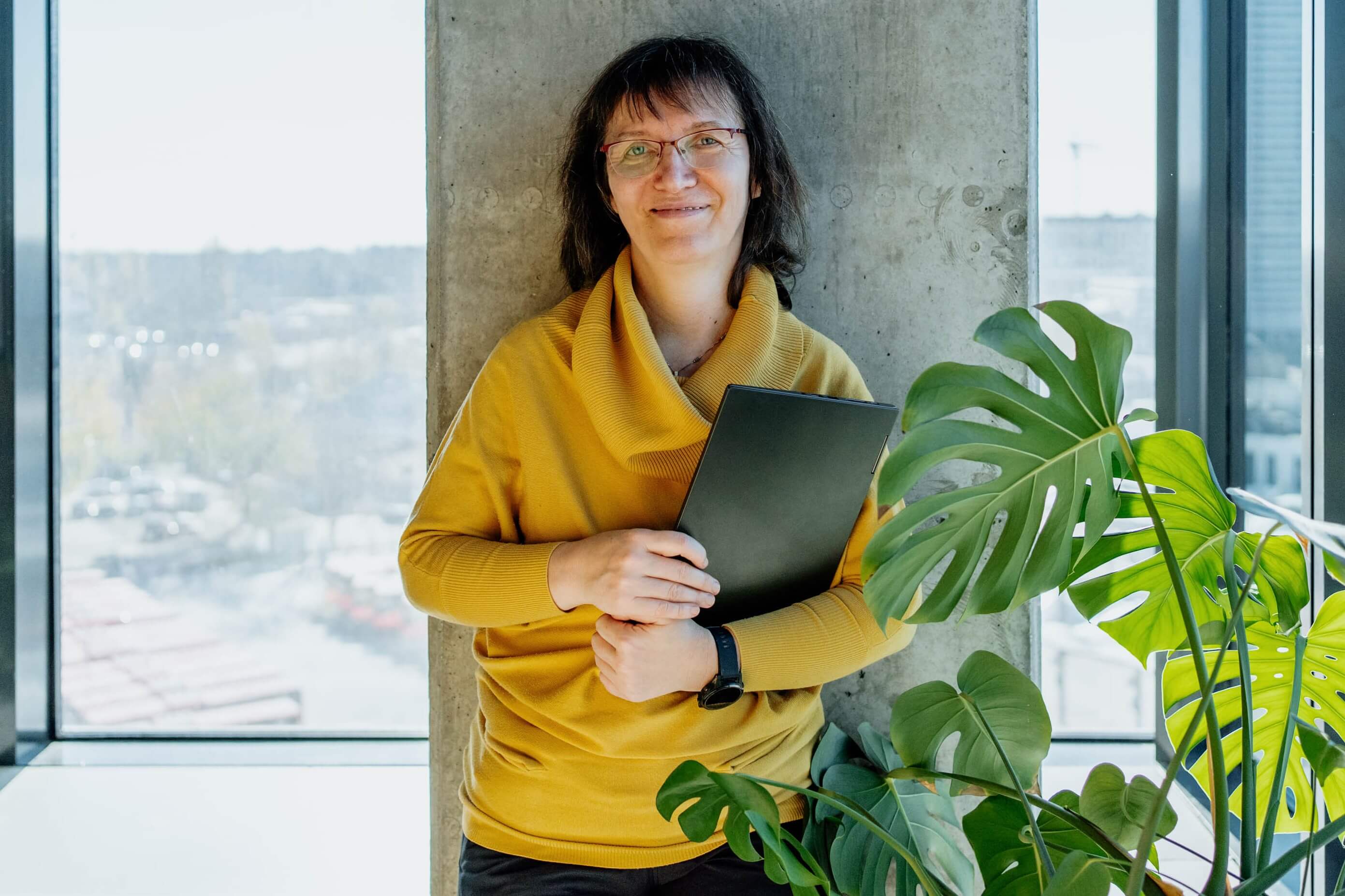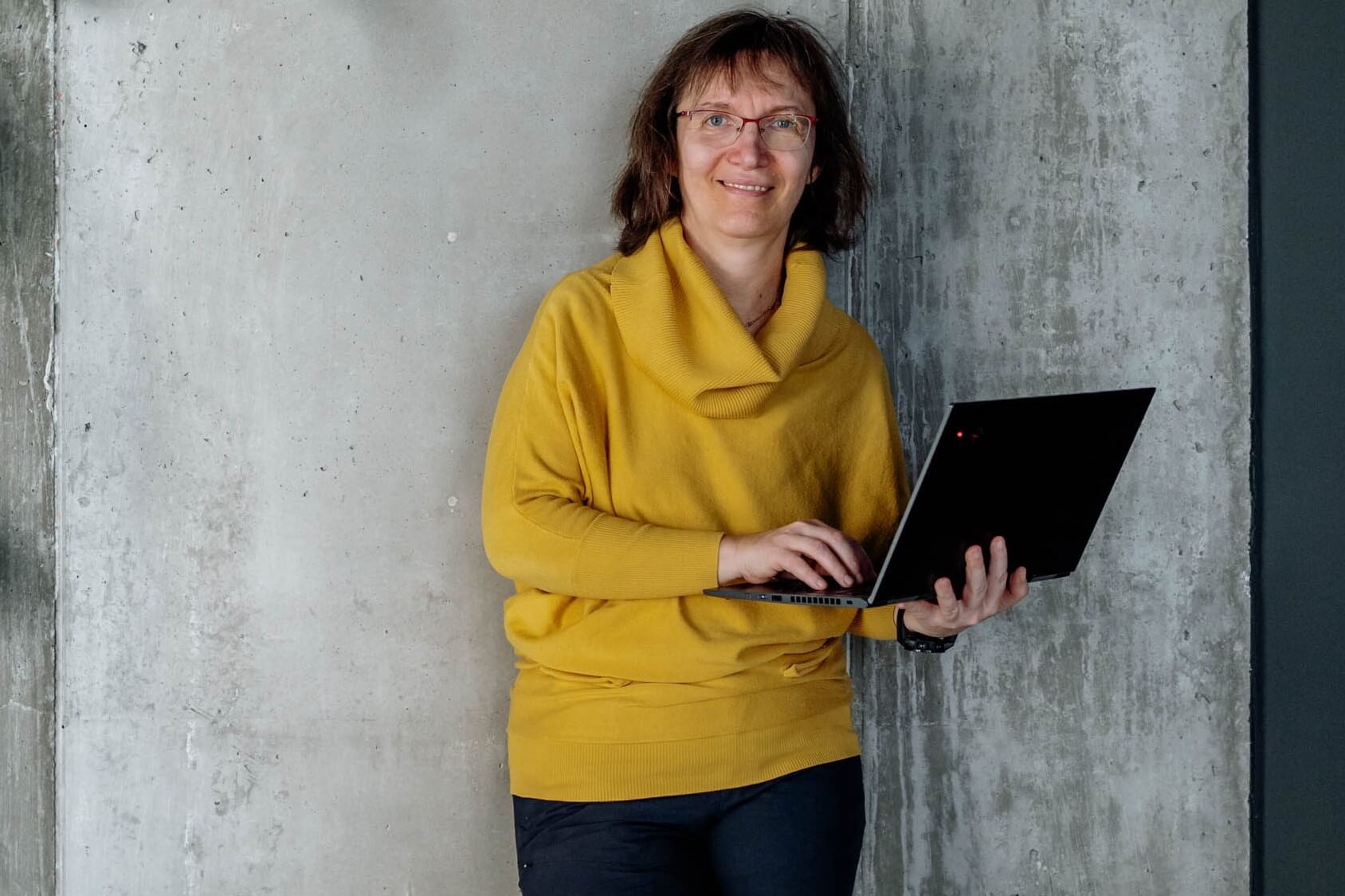It’s no secret that women continue to be underrepresented in the ranks of technologists. Indeed, with the scales traditionally tipped towards men, we may not always realize that many of the most remarkable inventions, discoveries and breakthroughs that have changed the course of history and shaped our understanding of the world were made by women.
Did you know that the world’s first computer program was written by a woman? The brilliant Ada Lovelace, born into the distinctly patriarchal world of the Victorian era, was far ahead of her time in understanding the potential of computing. Indeed, it took the world a century to appreciate the true scale of her achievements.
March is Women’s History Month, an annual celebration of the women who have made history as pioneers and trailblazers. It’s also the perfect time to reflect on the challenges – and opportunities – that lie ahead of women in their professional lives today.
These days, such opportunities are particularly aplenty in the vibrant worlds of technology and innovation. But what is it like for a woman to build a career in a male-dominated industry or occupation? Why choose a career in science, technology, engineering and math (STEM)? What’s holding women back from amplifying their voice in tech?
To help find answers to these and other questions, we sat down with leading Slovak computer scientist Mária Bieliková, who has devoted her career of 30-plus years to technology and innovation.

A leading Slovak researcher in computer science and artificial intelligence, Mária Bieliková has conducted extensive research in human-computer interaction analysis, user modelling and personalization. She also works in the data analysis and modelling of antisocial behavior on the Web and engages in public discourse about trustworthy AI. Formerly a university professor, the vice-dean and then the dean of Faculty of Informatics and Information Technologies at the Slovak University of Technology in Bratislava (STU), she later co-founded and currently leads the Kempelen Institute of Intelligent Technologies (KInIT), where ESET acts as a mentor and partner.
Can you briefly sum up your career path and tell us a little about the main professional challenges you have encountered along the way?
I have spent my entire career in academia but always looked to industry and businesses for collaboration opportunities. Even as a university student more than 30 years ago, I already worked on a joint project with an industry partner. Its subject was actually quite unusual for academia in Czechoslovakia at that time – developing an expert system to diagnose diseases in chickens.
Over time, I moved through several academic positions from assistant professor to associate professor and professor. I was also the vice-dean and the dean of STU’s Faculty of Informatics and Information Technologies, where I led the PeWe (Personalized Web) research group that was made up of many of my brilliant colleagues and students. I was also active in various international scientific networks and therefore traveled a lot.
In 2020, together with some innovative companies, we established an independent research institute, KInIT, which I currently lead.
The biggest challenge? It had to do with making sure I contribute in the best possible way to the professional and personal growth of honest and deeply committed experts with an entrepreneurial spirit.
What does it feel like for a woman to spend a career in technology? Have you ever felt like your job wasn’t safe simply because you’re a woman?
I certainly never felt such a ‘threat’. I have never really experienced any gender discrimination, neither in the academic environment nor when working within the industry. If there was any, I didn't know about it.
The world has come a long way and it is now increasingly natural for women to be represented in technology-related fields. In fact, inappropriate positive discrimination can cause misunderstandings and elicit the opposite reaction to what we would like.
Actions aimed at improving gender parity in tech can help a great deal, but they won’t work in real life unless people accept this equality. And that applies to both men and women. Women also need to be more confident.
How can we attract more women into science, technology, engineering and math (STEM)? Does software engineering, for example, offer more opportunities for women than traditional engineering disciplines?
Women should indeed be encouraged to work in STEM, but so should men. Our society today needs technology experts, especially those who can connect technology with the humanities and social disciplines.
The lack of women in the STEM fields is also because of stereotypes. Girls are less likely to play with building blocks and generally respond to expectations to pursue careers in non-STEM, rather than STEM fields. But the situation is gradually and slowly improving.
Computer science and related disciplines like software engineering are some of the disciplines that offer countless interesting opportunities for ambitious women. Software development is not just about programming – for example, it also includes software requirements specification, designing and testing. You need to communicate a lot with other people, as software is developed for a specific domain or users who are usually in a different domain from those who develop the software. The same holds for artificial intelligence and machine learning today, the only difference is that the “programming part” is a bit different.
Teams of professionals in one field, like engineers and computer scientists, create something for other professionals, such as lawyers, civil servants, doctors, insurance people and others. And in such teams, women are very important. They bring new perspectives, they can often get a sense of the ‘right user setting’, for example when designing user interfaces.
What do women bring to the software engineering table that is unique?
Women bring more empathy and emotional intelligence to development teams and are good at estimating the requirements for interactive applications. But many women are also great programmers.
What are your thoughts about the oft-discussed gender pay gap?
Personally, I've actually never experienced it. There are a lot of men in computer science and I always felt equal to them. But that was definitely thanks to my workplace culture. I was very lucky.
Overall, however, the pay gap statistics show the need to address the divide. It's also a challenge for AI researchers today, as current systems work on the basis of inference from large amounts of historical data, which naturally contain such biases, as they represent data from previous decisions made by humans.
The question is then, can we create systems that are less biased than humans and still perform well enough? For example, in the case of women and men, we don't want systems to make the same suggestions for both genders, but to not consider gender wherever it shouldn't be considered. And that's not an easy task for current AI systems, especially deep learning. So far, these systems are not transparent enough for us to know this. After all, human decision-making is similarly situated, which by definition is not transparent to the outside world, and often not even to the human who made the decision based on intuition.
When growing up, did you have any women role models in science and technology? More broadly, how important is it for girls to look up to women as scientists making a difference in people’s lives?
No, I had no such female role models. In addition, I didn't decide to go into technology until right before I started university. I was first looking at psychology and medicine. But I was always good at math; my father, sister, brother, uncle, and brother-in-law were all engineers by the time I was deciding on my future. So, I applied to the Faculty of Electrical Engineering of the Slovak Technical University (now Slovak University of Technology in Bratislava) and enrolled in ‘cybernetics’. After the second year I changed my field of study to ‘electronic computers’.
Now that Slovakia is generally more open to the world, things are different and there are many more such role models. And that's why it's important for girls to see women working in STEM fields. Not everybody is as lucky as I was in that even though I was surrounded by men, they all encouraged me to work in technology and I felt equal to them. I never felt as if a career in tech wasn’t the right choice for me just because I'm a girl.
Are there any personality traits that help women get started in technology? How can they learn to be more confident?
I don't think there are any specific personality traits that predict one’s success in a STEM field. For several years, we've worked with psychologists to administer the Big Five test to our computer science students. We found that overall, they were slightly below average on extraversion (i.e., they were more introverted) and often had outliers on other factors as well. But there is no way to say that more conscientious, or more open-minded, or more sensitive, or more rational people are better computer scientists. And the same is actually true both for men and women.
And while men and women do think differently, research has shown multiple times that women are just as intelligent in general as men. The trouble is, women often underestimate their own intelligence. Also, men are generally better at spatial imagination and also have a better grasp of numbers. That's probably why there will always be more men in technology. Having said all that, none of this should stop women from entering the field.
The important thing is to find the right job role. In computer science and software engineering in particular, there are now a lot of roles that are really more technical as well as more focused on social and humanities problems.
One piece of advice I have is to dive into mathematics from an early age. Even if you don’t excel at it, just practice. Practice makes progress, like in running or anything else. And then, one day you’ll realize that the world is different, that you have an understanding of algorithms, and that you can bring technical approaches to your everyday life.
Thank you for your time.
Happy Women’s History Month!






